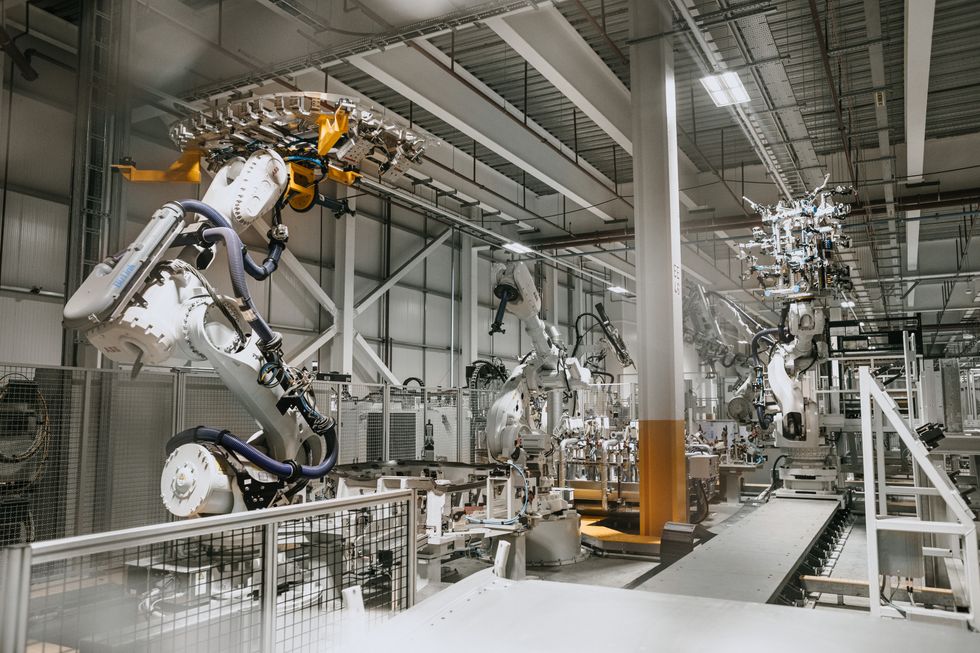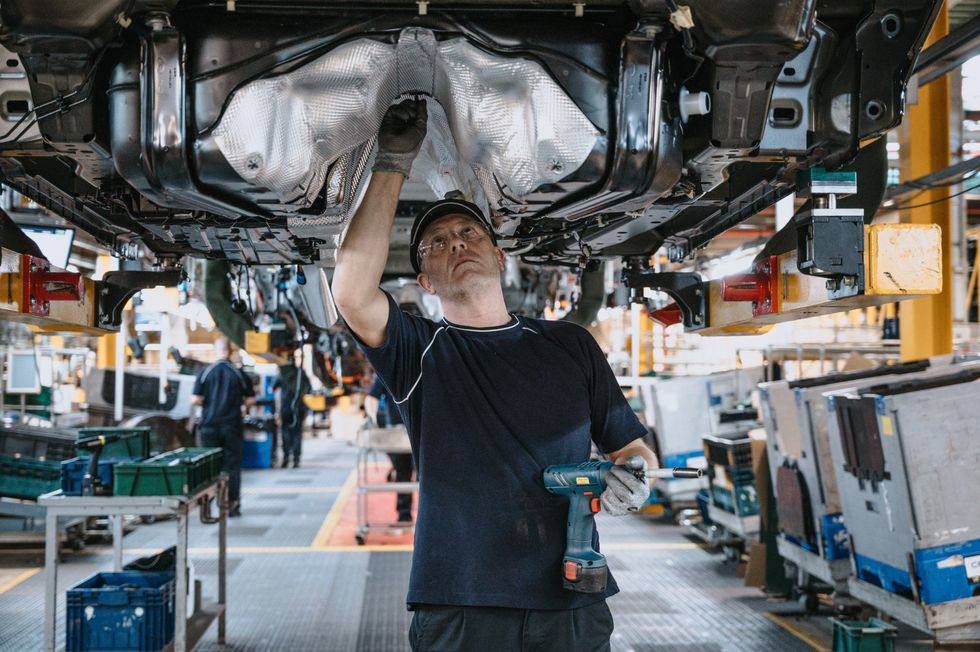Jaguar Land Rover backs electric cars with huge £500million funding boost for historic British factory
Jaguar Land Rover has provided funding worth £500million for its Halewood site
The Halewood factory has supported the development of the Range Rover Evoque and Discovery Sport
Don't Miss
Most Read
Trending on GB News
The future of electric vehicles in the UK has been boosted by Jaguar Land Rover announcing a massive £500million funding package to transform its historic Halewood facility.
The investment aims to create the "EV factory of the future" and support the parallel production of electric cars alongside existing combustion and hybrid models.
The significant financial commitment is part of JLR's broader Reimagine strategy, which seeks to electrify all its brands by 2030, having already invested over £250million in the project.
The Halewood plant, originally built in 1963 to produce the Ford Anglia, is undergoing a major transformation for the electric era by expanding the site by over 32,000 square metres.
Do you have a story you'd like to share? Get in touch by emailingmotoring@gbnews.uk

JLR has upgraded its electric vehicle facilities
JLR
This will support the production of JLR's medium-sized electric luxury SUVs on the new Electric Modular Architecture (EMA) platform.
The historic Halewood plant has been fitted with cutting-edge technology to support EV production including new build lines, 750 autonomous robots, and ADAS calibration rigs for future autonomous driving capabilities.
JLR's site will also have advanced laser alignment technology to ensure parts are fitted properly, with production lines already completing the first test builds of EMA body shells.
This transformation positions Halewood to eventually become JLR's first all-electric production facility, marking a significant milestone in the company's electrification journey.
The company aims to install 18,000 photovoltaic panels, which will produce 8,600 GWh of energy, accounting for 10 per cent of the site's energy consumption.
JLR intends to remove 40,000 tonnes of CO2 from Halewood's industrial footprint through a combination of renewables, fuel switching, and energy efficiency measures.
This forms part of the company's broader goal to achieve carbon net zero across its supply chain, products, and operations by 2039.
Commenting on the announcement, Barbara Bergmeier, executive director of industrial operations at JLR, said it took "brilliant efforts" to transform the site.
She added: "Halewood has been the heart and soul of JLR in the Northwest of England for well over two decades, producing vehicles such as the Range Rover Evoque and Discovery Sport.
"Halewood will be our first all‑electric production facility, and it is a testament to the brilliant efforts by our teams and suppliers who have worked together to equip the plant with the technology needed to deliver our world-class luxury electric vehicles."
A total of 40 new Autonomous Mobile Robots (AMRs) will also be introduced to assist employees in fitting high-voltage batteries.
JLR has also dedicated £20million annually to enable all employees to adapt their careers to new technologies and processes through its Future Skills Programme.
LATEST DEVELOPMENTS:

The Halewood site was originally opened in 1963
JLR
A new skills development centre has opened at Halewood, focusing on High Voltage Training (HVT) for battery assembly processes, with 1,600 employees already completing the course.
Around £16million worth of equipment has also been adapted from JLR's Castle Bromwich site, ranging from robots to automated guided vehicles for use at Halewood.








